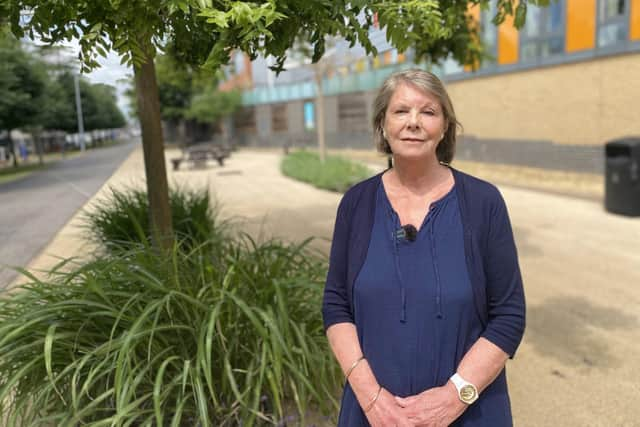NHS 75: How Sheffield woman drove herself to hospital 75 years ago and gave birth to one of first NHS babies
and live on Freeview channel 276
On July 5, 1948, Melloney Poole became one of the first babies to he born under the NHS – but not before her mum drove to the hospital herself while in labour.
Today, Melloney, who is now the chairwoman of Portsmouth Hospitals University NHS Trust, is celebrating her 75th birthday alongside this most vital of British institutions.
Advertisement
Hide AdAdvertisement
Hide AdShe says it has become family legend how her mother drove herself to the hospital to give birth, and how “proud” her family was that she was born in the Steel City.


"I was born in Sheffield – very proudly in Sheffield,” Melloney said. “The reason, partly, that my mother was so pleased with having driven me into the hospital, allegedly, is because in those days only those that were born in Yorkshire could play cricket for Yorkshire. Of course, I was not going to play cricket as she found out subsequently, but it was a really important thing to my father that if I was a boy I could play cricket for Yorkshire.
“When I was born at six o'clock in the evening, I was one of the very first babies under the new NHS.”
When Melloney was just 17 her mother died following a brain haemorrhage, but the care she received was key in shaping the then teenager’s views of the NHS. “The brilliant care she had by the NHS was really significant and the compassion then, and the compassion that I see every day now, is so important to the NHS.”
Advertisement
Hide AdAdvertisement
Hide AdMelloney had wanted to be a nurse but only made it through the first year of her studies at the Royal Devon and Exeter Hospital.
“Unfortunately, I kept on fainting at the sight of blood,” she recalls. “Which wasn't terribly helpful for a nurse. And it's probably the right thing that I didn't pursue it. But I remember vividly one morning when I was a little late and I was driving far too fast into work, I had a car accident and ended up on the operation table.
“This fearsome but incredibly determined nurse tutor, who was in charge of all the trainee nurses, turned up at the operation table, looked down at me and said: ‘Melloney, what are you doing THERE? You should be in one of my lectures!’ So that's been a lesson never to be late ever, ever again.”
From there she entered law and on becoming qualified she was the first woman to be offered an article clerkship, “as they were called in those far-off days,” at a firm of solicitors in London, opposite the High Court.
Advertisement
Hide AdAdvertisement
Hide AdSince 1993 she has served on a number of NHS trust boards, including Preston Acute Hospital Trust in Lancashire, the Royal Surrey County Hospital in Guildford and the Sussex Partnership before arriving as chair on the Portsmouth board in 2017.
Melloney describes working for the NHS as “addictive” and she commened all those who work for it for their “sheer commitment of people to think of others”.
“It is incredibly absorbing work because at board level it is full of problems you cannot solve, risks you must mitigate, complexities beyond that which you would ever think possible, and also the ability is required to think in so many directions, but still to come back to what is best for the patient in the hospital – that's what's most important,” she said.
“Not being able to solve the problems of systems, or lack of money, or lack of staff, quickly becomes addictive. It is very frustrating, but when things work and when things are improved it's an incredible feeling that that is the right thing to do.”
Advertisement
Hide AdAdvertisement
Hide AdAnd of course it’s the people: “It's the sense of community, it's the sense of family - it's the huge range of diverse talents and ability. It's absolutely fantastic to see the range, and everybody's committed to this family...and ultimately every single person comes to work for a reason other than making money. It's just incredible and a huge privilege.”
Comment Guidelines
National World encourages reader discussion on our stories. User feedback, insights and back-and-forth exchanges add a rich layer of context to reporting. Please review our Community Guidelines before commenting.
